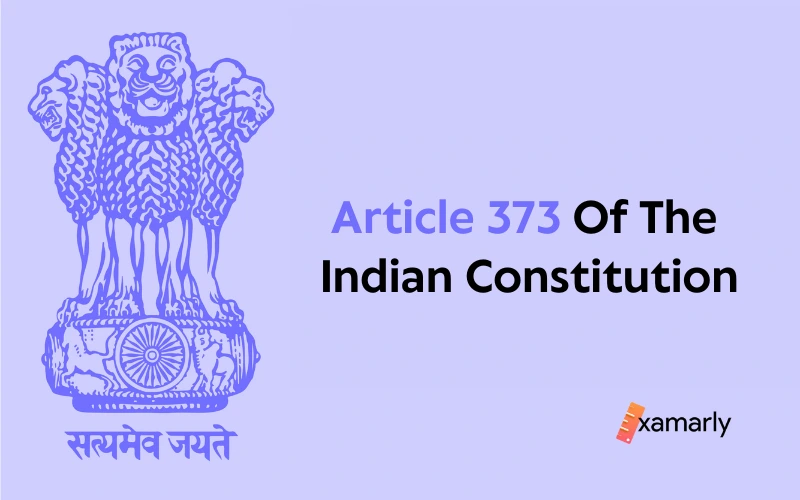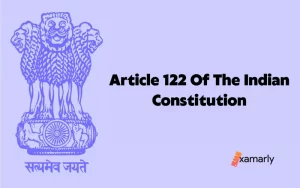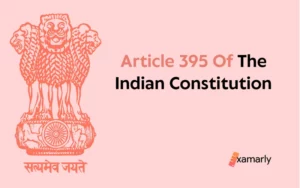Article 373 of the Indian constitution mainly deals with the power of the President and the nuances of the powers.
We usually delve into the intricacies of constitutional law and its impact on our daily lives. In this blog, we will be discussing Article 373 of the Indian constitution which deals with the detention of individuals by the government. One of the key provisions in this article is the temporary provision that is in effect until either Parliament takes action or one year passes from the start of the Constitution. We will also take a brief look into clauses (4) and (7) of Article 22 which is closely related to Article 373.
This provision states that until a permanent solution is established, the President will have the power to make decisions and laws regarding detention, rather than Parliament.
This is a crucial aspect of our constitutional law and we will be exploring the implications and significance of this provision in this blog post. So, stay tuned, and let’s dive in!
- What Is The Significance Of Article 373 Of The Indian Constitution?
- What Are The Crucial Aspects Of Article 373 In The Indian Constitution?
- How Is Article 22 Related To The Article 373 Of The Indian Constitution?
- Closing Thoughts
- FAQs Related To The Article 373 Of The Indian Constitution
- What is Article 373 of the Indian Constitution?
- What is the authority that the President holds to issue directives regarding individuals being held under preventive detention?
- How does Article 22 of the Constitution relate to the President's power in Article 373 to make orders in respect of persons under preventive detention?
- What does it mean for a reference to Parliament in Clauses (4) and (7) of Article 22 to be substituted with a reference to the President in Article 373?
What Is The Significance Of Article 373 Of The Indian Constitution?
The Article 373 of the Indian constitution majorly refers to the temporary provision in Article 22 of the Indian Constitution that allows the President, rather than the Parliament, to make decisions and laws regarding the detention of individuals.
This provision is in effect until either Parliament takes action or one year passes from the start of the Constitution. The purpose of this provision is to give the President the power to take quick action in cases where there is an immediate threat to public safety or security while allowing time for Parliament to establish a more permanent solution.
This provision is a significant aspect of constitutional law and it provides emergency power to the President to take necessary actions in the interest of public safety and security.
What Are The Crucial Aspects Of Article 373 In The Indian Constitution?
Power of President to make order in respect of persons under preventive detention in certain cases.—Until provision is made by Parliament under clause (7) of article 22, or until the expiration of one year from the commencement of this Constitution, whichever is earlier, the said article shall have effect as if for any reference to Parliament in clauses (4) and (7) thereof there were substituted a reference to the President and for any reference to any law made by Parliament in those clauses there were substituted a reference to an order made by the President.
Crucial Aspects Of The Provision
- Article 373 deals with the Power of the President to make orders in respect of persons under preventive detention in certain cases refers to a temporary provision in the Indian Constitution.
- This provision allows the President to make decisions and laws regarding the detention of individuals in certain cases.
- This power is provided in Article 22 of the Indian Constitution which applies to both citizens and non-citizens.
- Clause (7) of Article 22 provides for a temporary provision that is in effect until either Parliament takes action or one year passes from the start of the Constitution.
- This temporary provision allows the President, rather than Parliament, to make decisions and laws regarding the detention of individuals.
- This is done by substituting references to Parliament in clauses (4) and (7) of Article 22 with references to the President and references to any law made by Parliament with references to an order made by the President.
- The rules made under Article 373 are temporary and will last only until the situation that caused them is fixed.
In simple words, this provision gives the President the power to detain people if it’s deemed necessary for the safety and security of the public until a permanent solution is established by the Parliament. Article 22 of the Indian constitution is about protection against arrest and detention and a temporary provision in Clause (7) provides the President power to make decisions and laws in certain cases.
How Is Article 22 Related To The Article 373 Of The Indian Constitution?
The President can only make orders under Article 373 until the provision is declared by the Parliament with respect to clauses (4) and (7) of Article 22.
Article 22 of the Indian Constitution deals with the protection against arrest and detention in certain cases. It is an important fundamental right that extends certain procedural safeguards for individuals in case of an arrest.
This article is applicable to both citizens and non-citizens, and it lays out specific rights and protections for individuals who are arrested or detained, such as the right to be informed of the grounds for their arrest, the right to consult with a lawyer, and the right to be produced before a judicial authority within a certain period of time.
The idea behind this right is to prevent arbitrary arrests and detention by the government and to ensure that proper procedures are followed when a person is taken into custody. This right is crucial in protecting the civil liberties of individuals and ensuring that the government is held accountable for its actions.
Clauses (4) & (7) Of Article 22 Related To Article 373 – Explanation
As we have looked into the vital relation of Article 22 in deciding the powers of the president to make orders, let us understand clauses (4) and (7) of Article 22 in detail.
Clause (4) Of Article 22
This clause states that a person can only be detained for preventive reasons for a maximum of three months unless an Advisory Board of High Court Judges confirms that there is sufficient cause for the detention. It also states that the detention cannot exceed the maximum period prescribed by any law passed by Parliament and must be in accordance with laws passed under sub-clauses (a) and (b) of clause (7).
Clause (7) Of Article 22
This clause states that Parliament can pass laws that prescribe specific circumstances and classes of cases where a person can be detained for longer than three months without the opinion of an Advisory Board, and laws that establish the maximum period for detention and the process for Advisory Board inquiry in accordance with sub-clause (a) of clause (4).
Check out our latest posts:
- States And Capitals Of India: Exploring India’s Regional Diversity
- Difference Between Economic And Non Economic Activities
- Difference Between Hindustani And Carnatic Music
- Difference Between Indian Secularism and Western Secularism
- What Is The Role Of Social Media In Democracy?
Closing Thoughts
In this blog, we have looked into the exceptional power of the president under Article 373 which is also closely knitted to Article 22 of the Indian constitution.
In a nutshell, The President has the power to make orders regarding preventive detention in certain cases until legislation is passed by Parliament or until one year after the Constitution’s implementation, whichever comes first. This replaces references to Parliament and laws made by Parliament in Article 22, clauses 4 and 7.
FAQs Related To The Article 373 Of The Indian Constitution
What is Article 373 of the Indian Constitution?
Article 373 is a special provision in the Indian Constitution that allows the President to make special provisions for the administration of certain states in India.
What is the authority that the President holds to issue directives regarding individuals being held under preventive detention?
The President has the power to make orders in respect of persons under preventive detention until a provision is made by Parliament under Clause (7) of Article 22, or until the expiration of one year from the commencement of this Constitution, whichever is earlier.
How does Article 22 of the Constitution relate to the President’s power in Article 373 to make orders in respect of persons under preventive detention?
Article 22 of the Constitution provides for the President to have the power to make orders in respect of persons under preventive detention until provision is made by Parliament under Clause (7) of the article, or until the expiration of one year from the commencement of the Constitution, whichever is earlier.
What does it mean for a reference to Parliament in Clauses (4) and (7) of Article 22 to be substituted with a reference to the President in Article 373?
It means that until provision is made by Parliament under Clause (7) of Article 22, or until the expiration of one year from the commencement of the Constitution, the President has the power to make decisions and orders in respect of persons under preventive detention, rather than Parliament.






